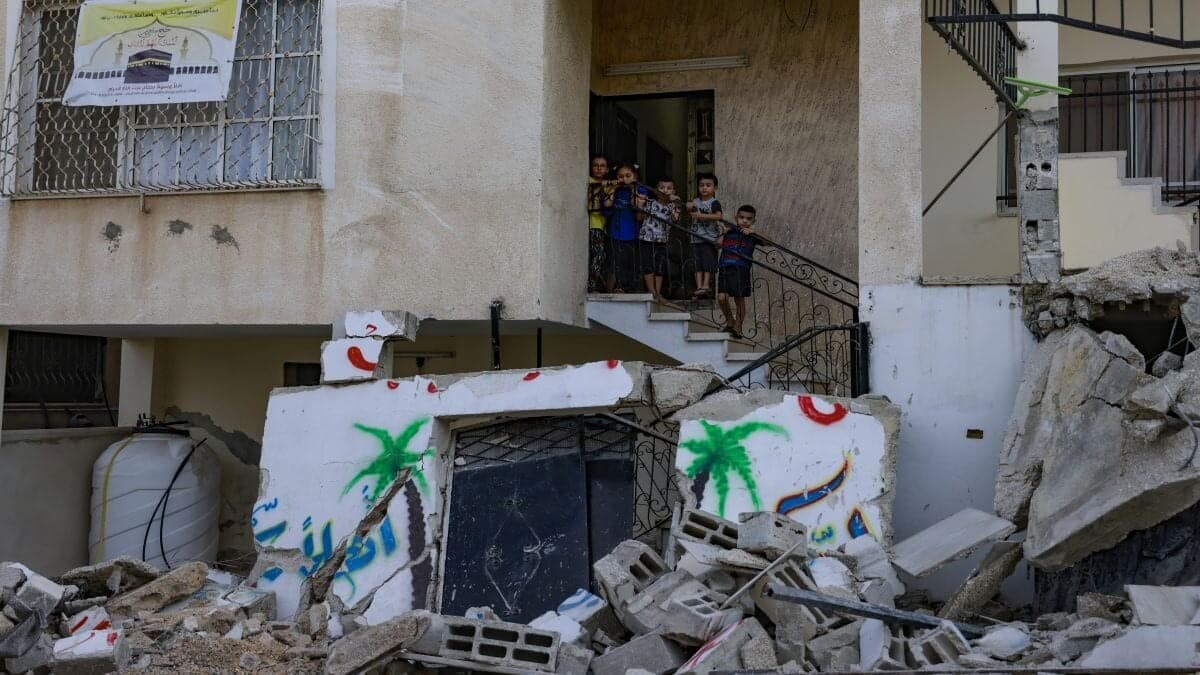
Explained: Why Israel launched military operation in West Bank
What's the story
On Wednesday, Israeli forces initiated a major military operation in the occupied West Bank, supported by drones and armored vehicles.
This marks the largest operation in over two decades, with the last of similar scale being Operation Defensive Shield during the Second Intifada.
The Palestine Red Crescent Society reports at least 10 fatalities and nearly two dozen injuries so far.
As these operations continue, it's crucial to understand the significance of the West Bank and why this region matters.
Geographical importance
Understanding the West Bank and its significance
The West Bank is a region located to the east of Israel, bordering the River Jordan.
It shares boundaries with Israel on three sides and Jerusalem on one.
The area is home to approximately two to three million Palestinians and around 430,000 Israeli Jews residing in 132 settlements (and 124 smaller "outposts") built under Israel's occupation since the 1967 Six-Day War.
Settlement controversy
Israel's settlement plans and international response
Israel's Prime Minister, Benjamin Netanyahu, has prioritized the construction of settlements in the West Bank.
In June, his office announced plans to build 1,000 new homes for the Eli settlement in West Bank. However, these plans have been met with international criticism.
In July, the International Court of Justice (ICJ) ruled that Israel's occupation of Palestinian territories violates international law and urged an end to settlement activity in occupied areas including East Jerusalem and Gaza Strip.
Operation specifics
Details of the ongoing military operation in West Bank
The Israel Defense Forces (IDF) confirmed that the current actions in West Bank are part of a large counter-terror operation, primarily focused on Jenin and Tulkarem in the north.
The operation is being conducted in coordination with Israel Border Police forces and internal security service.
Armored columns have entered two refugee camps, Tulkarem and Tubas, as well as Jenin where gunfire and explosions were reported throughout Wednesday evening.
Civilian impact
Impact and response to the military operation
Tulkarem municipal worker Hakim Abu Safiyeh reported that Israeli forces "attacked infrastructure, in particular in city of Tulkarem and Nur Shams camp" and "destroyed" water sewage systems.
Israeli bulldozers were seen excavating asphalt from streets as the army searched for roadside bombs.
Air raids were also launched near Al-Faraa refugee camp, a short distance from Jenin where four other armed militants were reportedly killed.
The governor of Jenin described these raids as "unusually fierce."
Operation justification
Israel's rationale for the military operation
So, what triggered the IDF's massive raids on Wednesday?
According to Israel's Foreign Minister, Israel Katz, the operation was intended to "thwart Islamic-Iranian terrorist infrastructure," alleging that Iran is attempting to establish an "eastern front" against Israel.
"We must address this threat just as we address terrorist infrastructure in Gaza, including temporarily evacuating Palestinian residents and taking any necessary actions," he posted on social media.
Statement
'Systematic strategy...': What IDF said
IDF spokesperson Lieutenant Colonel Nadav Shoshani added that Israel had detected a "systematic strategy" by Iran to smuggle weapons and explosives into the West Bank.
He noted that over the past year, more than 150 shooting and explosive attacks have originated from the areas of Jenin and Tulkarm.
The IDF has justified its raids by pointing to a rise in Palestinian violence against Israelis, noting that 30 Israelis have been killed in 2023.